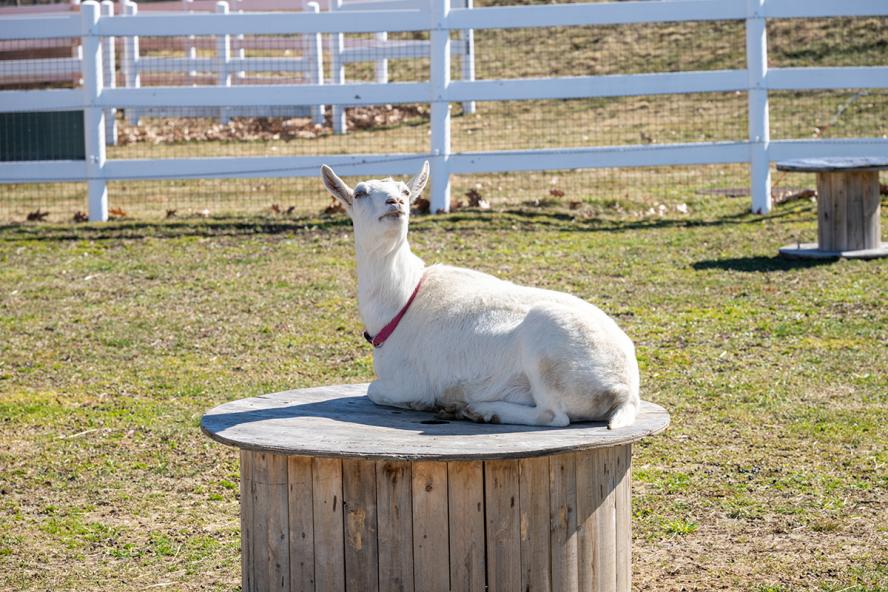-
About
- Leadership & Faculty
- News & Events
-
Academics
- Graduate
- Advanced Clinical Training
- Continuing Education
- Academic Departments
- Academic Offices
- Simulation Experiences
-
Student Life
- Offices
-
Research
-
Hospitals & Clinics
- Emergency Care
- Hospital Services
-
Community Outreach
- Volunteer
Keeping Farm and Livestock Cool in the Summer Heat
Things to Know

Things to Know: Keeping Farm and Livestock Cool in the Summer Heat
During the summer months, farm animals and livestock can get too hot. Paying extra attention to animals during high heat and humidity is essential. Below are some recommendations to help keep your farm animals and livestock safe, comfortable, and relaxed during the hot summer days. Here are signs to watch for if your animals become too hot, by species.
General livestock notes
- Provide plenty of shade that remains shady the whole day
- Avoid working/handling/stressing them during the heat of the day
Sheep & Goats
- Generally, goats will be more tolerant of heat than sheep, and haired sheep will be more tolerant than wool breeds. That being said, wool acts as insulation against heat as well as against the cold. Ideally, wool sheep should be sheared in the spring so they have some wool growth by the time summer rolls around to help dissipate the heat. Remember that sheep and goats have an average temperature range of 102F – 103.5F, higher than our other livestock species!
Llamas & Alpacas (South American Camelids)
- Llamas and alpacas evolved to live at high altitudes with cooler climates in South America. This means they have a limited capacity to cool themselves when temperatures are elevated; this makes them particularly vulnerable to heat stress. Signs of heat stress include lethargy, increased respiratory and heart rate, nostril-flaring, a drooping bottom lip, and elevated body temperature.
- To help keep llamas and alpacas cool, it is vital to shear the animals or at least clip the fiber on the belly and chest. Llamas and alpacas also enjoy water! Spraying their legs and bellies with water can help cool them, or you can consider offering wading pools in the paddock. They should always have access to plenty of fresh drinking water. Finally, it is recommended to limit any handling or required transportation to the coolest part of the days during the summer months.
Pigs
- Pigs cannot sweat, and temperatures above 70 degrees Fahrenheit may cause stress and cool-seeking behavior, including lying on their sides stretched out and lying away from bedding and other pigs.
- Pigs may turn over their drinking water to create a muddy wallow for cooling, which could result in a critical lack of water. This water deprivation may cause salt intoxication, an often fatal disease after water is reintroduced. Always be sure to provide a well-secured, fresh drinking water source and offer opportunities to cool down in a designated wallow or pig pool.
Alexandra Uden, DVM, Julia Berger, DVM, and Jacquelin Graber, DVM, are assistant clinical professors at Tufts Veterinary Field Service in the Department of Ambulatory Medicine & Theriogenology.
Department:
Tufts Veterinary Field Service